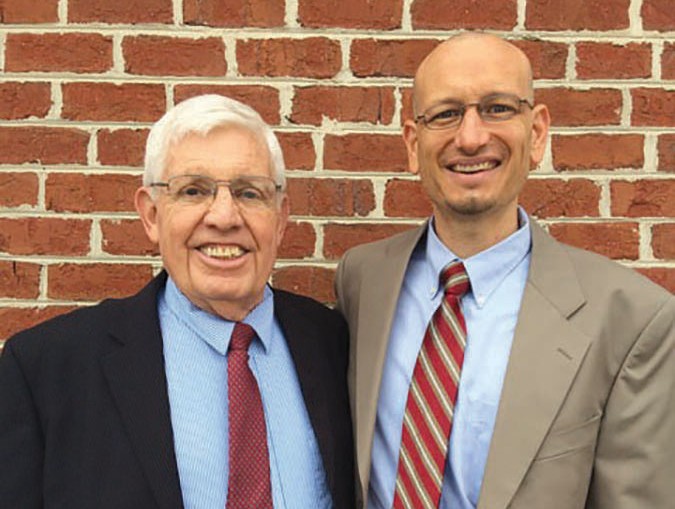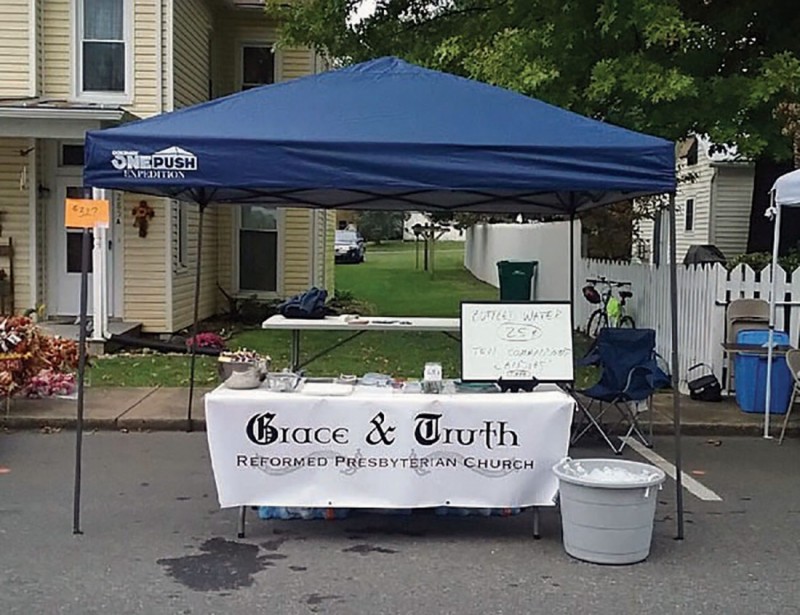You have free articles remaining this month.
Subscribe to the RP Witness for full access to new articles and the complete archives.
There are various ways to start a new church, but usually the leadership for it comes from a church planter. Church planting courses are typically designed for church planters, who are exhorted to cast their own vision and assemble launch teams in agreement with it. But experience shows that a solo worker often becomes discouraged, and a glance at the book of Acts reveals that the missionary labors of Paul were actually carried out by a growing team.
One counter-example of leadership in a new church is occurring in the Grace & Truth RP Mission Church in Harrisonburg, Va., where Ryan Bever, a recent graduate of Reformed Presbyterian Theological Seminary, has been called as stated supply preacher. He labors alongside Paul Martin, a retired pastor who has been called by the Presbytery of the Alleghenies (POA) to serve as their regional home missionary. At present, Rev. Martin splits his time between two new churches, one in Harrisonburg, Va., and one in Birmingham, Ala. What follows is a summary of a phone interview with the two of them.
How did the Harrisonburg group form?
This church plant began before either of us was involved. Mr. Chris Myers, a former member of Trinity RPC in Maryland, facilitated a number of families coming together and beginning to worship together.
When did you get involved in the work?
PAUL: Late in 2013. Chris Myers came to RPTS to meet with our candidates and credentials committee, and he asked me to preach in Harrisonburg. At that time the Trinity session was acting as the temporary governing body for the work, which was otherwise largely self-directed. In time, preaching came to be provided by Rev. Tom Reid, by a local OPC minister, and by me.
In 2016 Rev. Reid proposed to the Presbytery of the Alleghenies that they appoint a man to serve them as regional home missionary. The presbytery responded by appointing me to this role, and as it seemed the Harrisonburg work could profit from having an ordained man on-site, I moved there in the summer of 2016. I met with the regional home missionary of the OPC in the area, and he was extremely generous and helpful with his time and their resources.
RYAN: My senior year at RPTS (2016–2017) was naturally a time to preach in various churches and candidate for those who needed a pastor. I preached in Harrisonburg around Thanksgiving of that year, and a few more times during the winter and spring. They called me in the spring of 2017, and I accepted and moved there over the summer.
How are your labors funded?
Paul Martin is supported to a degree by his pensions, and his labors as a regional home missionary are funded by the POA and Home Mission Board (HMB). Ryan Bever is paid a salary through the giving and savings of the local group and by the reducing-aid program of the HMB.
How do you work together?
In terms of tasks, Ryan handles most of the Sabbath work—most of the preaching and presiding. Paul meets contacts, does some of the counseling, and preaches when needed. He was particularly needed to preach during Ryan’s first year as Ryan was battling a severe case of Lyme disease. We do evangelistic outreach and some counseling together.
We talk at least four times per week and pray every Saturday together. We live 15–20 minutes apart, in a small city of 60,000. We’re also quite close in terms of our expectations for church life, or “philosophy of ministry” as some might term it. We’ve had very few disagreements and when we do we’re looking to work them out.
What are the advantages of working as a team?
It is a huge encouragement to talk so often with someone in the same boat, who also knows the congregation. We talk at least every other day. For me (Ryan), Paul’s experience is a great help. Without Paul I might not have accepted the call. When you look at the Bible, you see Paul and Barnabas or Paul and Silas. Or recall the verse in Ecclesiastes, “Two are better than one, because they have a good reward for their toil. For if they fall, the one will lift up his fellow. But woe to him who is alone when he falls and has not another to lift him up!” (4:9–10).
What are the disadvantages of working as a team?
We haven’t really experienced them. But if two men were ministering together without agreeing on philosophy of ministry, that would likely be a problem. Make sure you’re on the same page before working together!
What advice would you give to other church planters?
PAUL: We need to clearly understand that starting a new church as a daughter of a mother congregation is a very different animal from starting a new church with people who have found each other and decided to do church together. The OPC is considering using two men to do “parachute drop” church works, an older and a younger, and I think there’s a lot of wisdom to that.
Furthermore, it is helpful if there are ordained men in the group, whether they have been ordained in the RPCNA or in another Reformed church previously. It helps bring unity and maturity, and the group can move forward faster, often with less dissension.
RYAN: Have someone to talk with and pray with. It is so good to have someone to talk things over with: What do you think is going on with this situation? How should we address this?
––––––––––––––––––––––––––––
Author’s note: For the past few years, the Home Mission Board has required applications for reducing-aid funding to include the name of an “encourager” for the church planter. The encourager commits to speak a minimum of once each week with the planter and see him in person as frequently as geography and circumstance permit. We hope this article encourages you to keep the work of church planting in your prayers, to reach out to encourage those involved in the work, and to keep thinking and praying about how God can use you and your congregation to extend Christ’s church.
John D. Edgar is the pastor of the Elkins Park Reformed Presbyterian Church near Philadelphia, and a member of the Home Mission Board.

